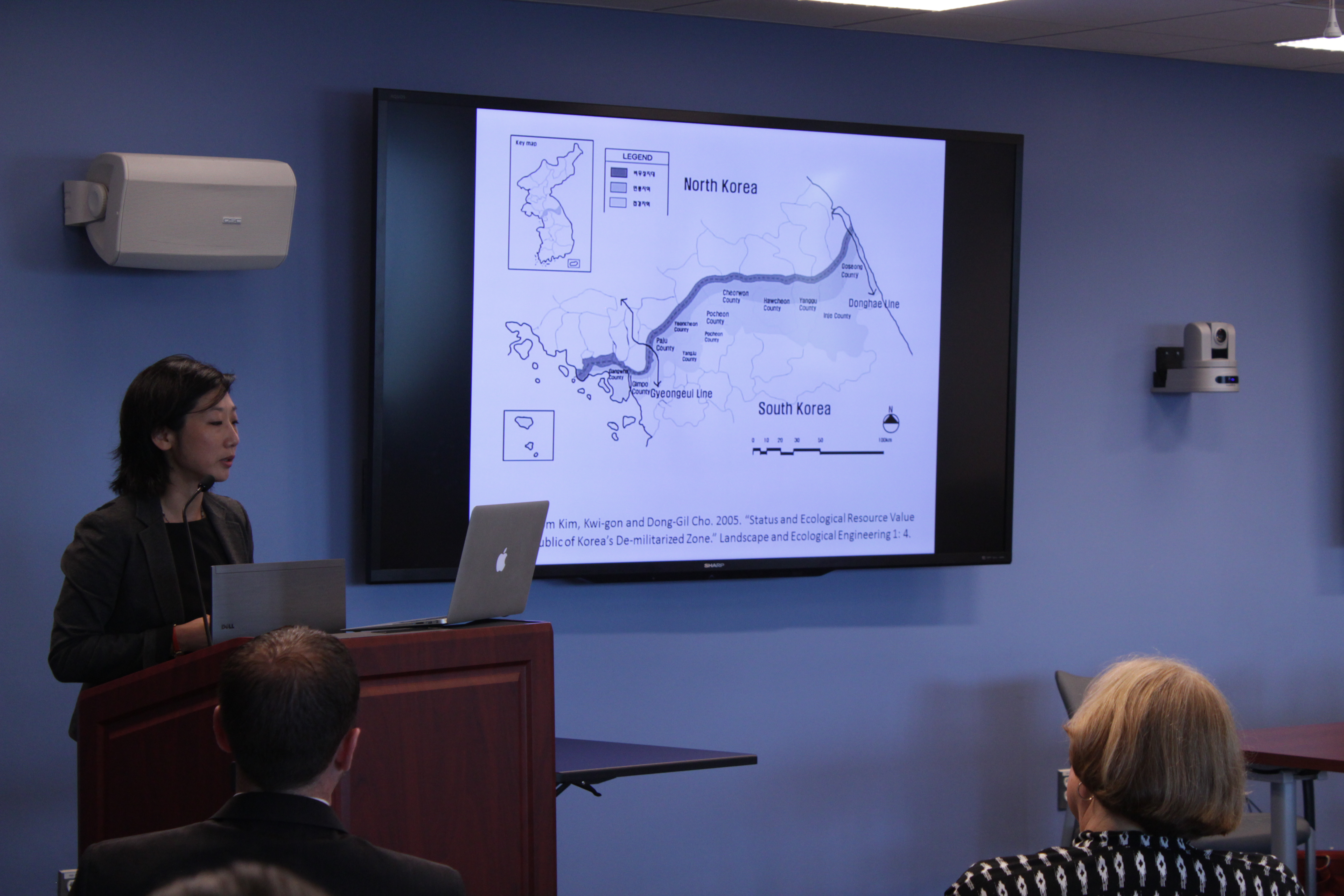
A 2016 conference organized by the Korea Peace Network helps promote engagement with North Korea AFSC
Convincing policymakers and the public to engage North Korea is a huge challenge.
Advocates and experts working to engage North Korea know that the voices for engagement seldom make the news. This is especially frustrating, given that we know how effective engagement is. Too often, the U.S. media treats North Korea like a joke or a one-dimensional threat, rather than an international actor or the home of millions of ordinary people. These portrayals are a key reason that U.S. public opinion has barely moved on North Korea in recent years, with people in the U.S. consistently ranking the DPRK as one of the biggest threats to U.S. national security. Fortunately, AFSC's research has shown that engagement messages can break through the noise - especially if advocates and experts follow four simple guidelines when talking about North Korea.
- Lead with shared values: What values do you share with your audience? It might be human rights, the importance of people-to-people diplomacy, or a commitment to nonviolence. Research shows that framing your message in terms of values that you and your audience share is critical to helping them hear the rest of what you have to say.
- Identify a specific problem that you need your audience to help you solve: Research shows that when people constantly hear negative, crisis-oriented messages, they shut down. Fortunately, research also shows that when advocates and experts talk about concrete problems, audiences are more likely to want to help solve that problem. Which leads to our third recommendation...
- Focus on practical solutions to the problems you've identified: Once you've named a concrete problem, it is critical to follow-up with a tangible solution to that problem. It can be large or small, but whatever it is, it should feel doable to your audience.
- Present your audience with a concrete action (or two or three) that they can take to help you solve this problem: The last step in building an effective message is to follow-up with your ask. The more specific and user-friendly, the better.
These tips for building an effective message aren't just useful when talking about engagement with the DPRK - they can be applied to any message you want to build on any topic. The important thing to remember is VPSA: Values, Problem, Solution, Action. As an example, here's a message that one advocate might use if trying to convince another to help build support with the NGO community for engaging the DPRK:
"Human rights and a vibrant, peaceful world are values that we all hold dear (Values). Yet, many people don't understand that failing to engage with other countries makes the world more dangerous (Problem). We can help people see that engaging with everyone is critical to advancing human rights and building peace (Solution). Want to help us spread the word about the importance of engagement? Share our new report with your networks (Action)."
Have a messaging success story to share? Tell us about it on Twitter @afsc_org.